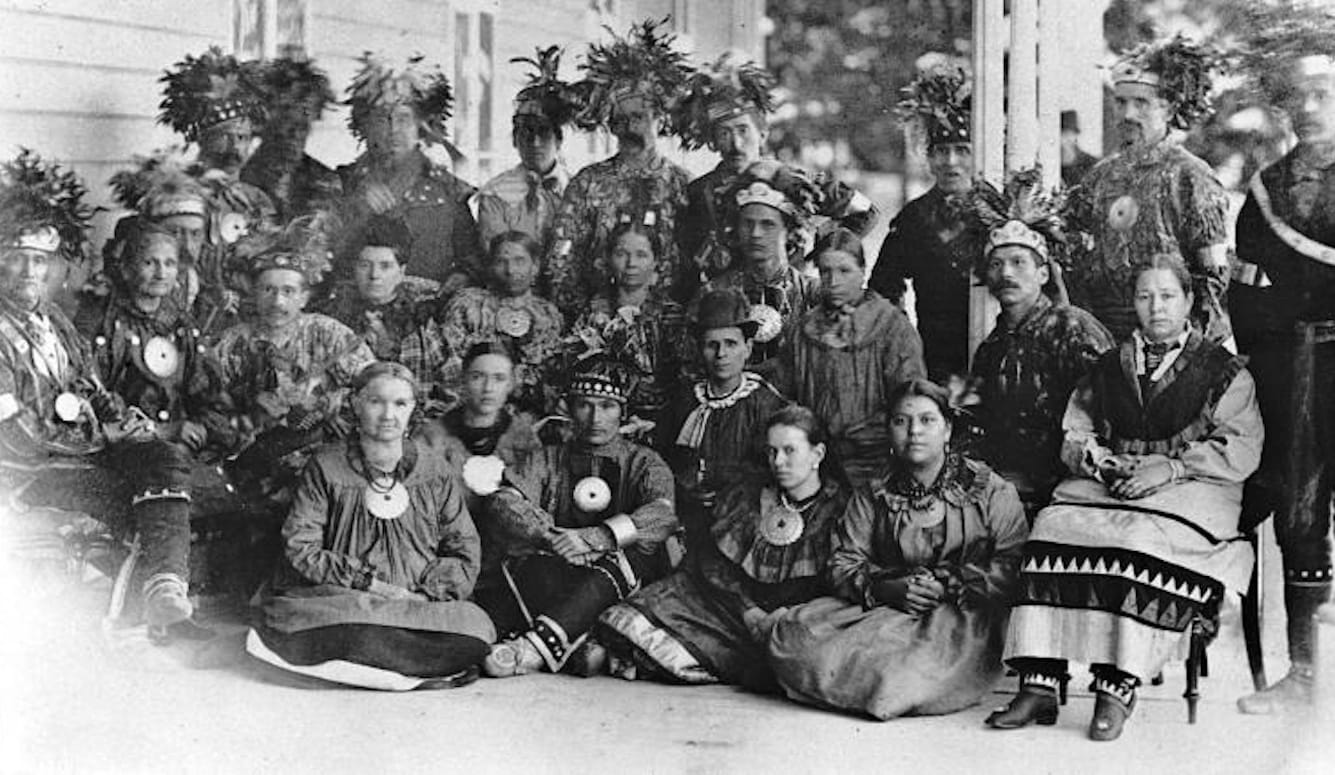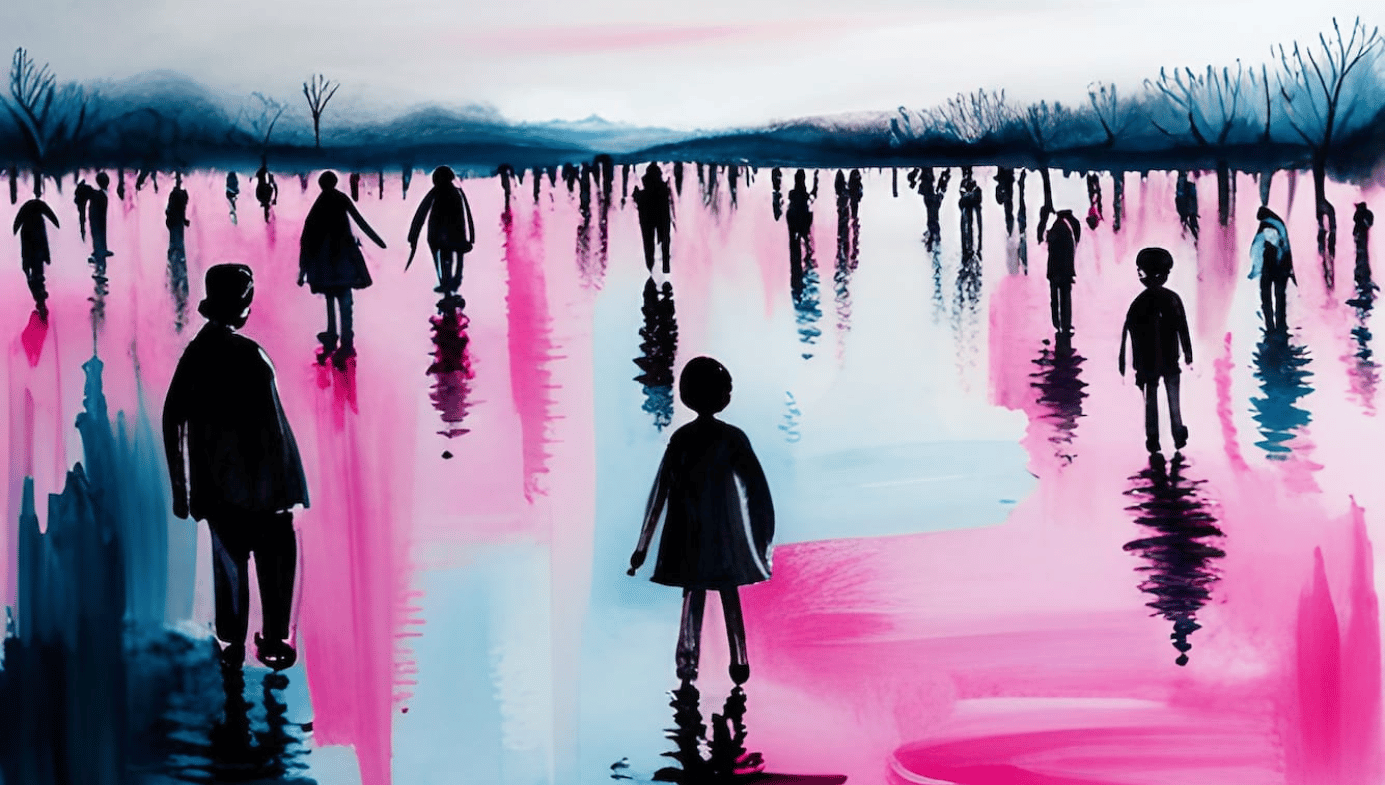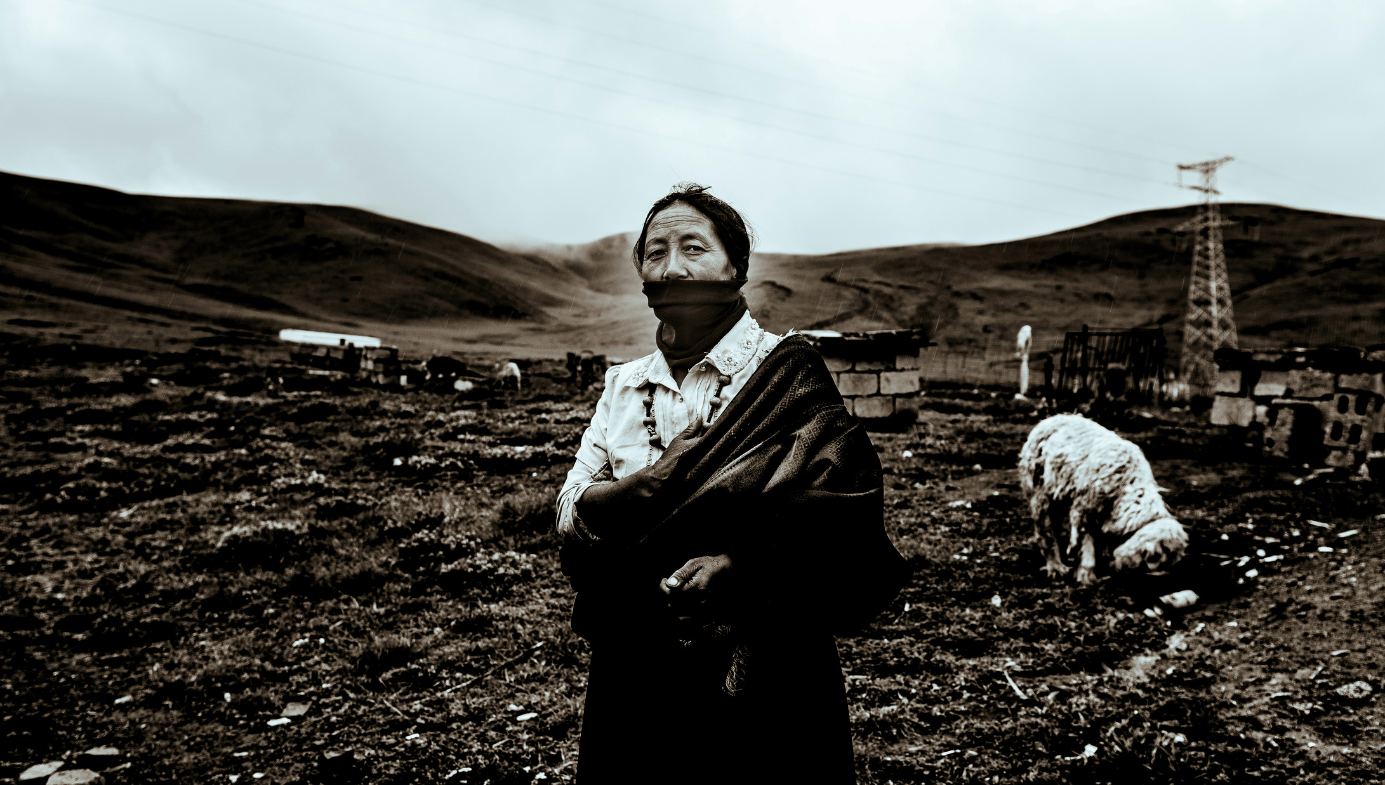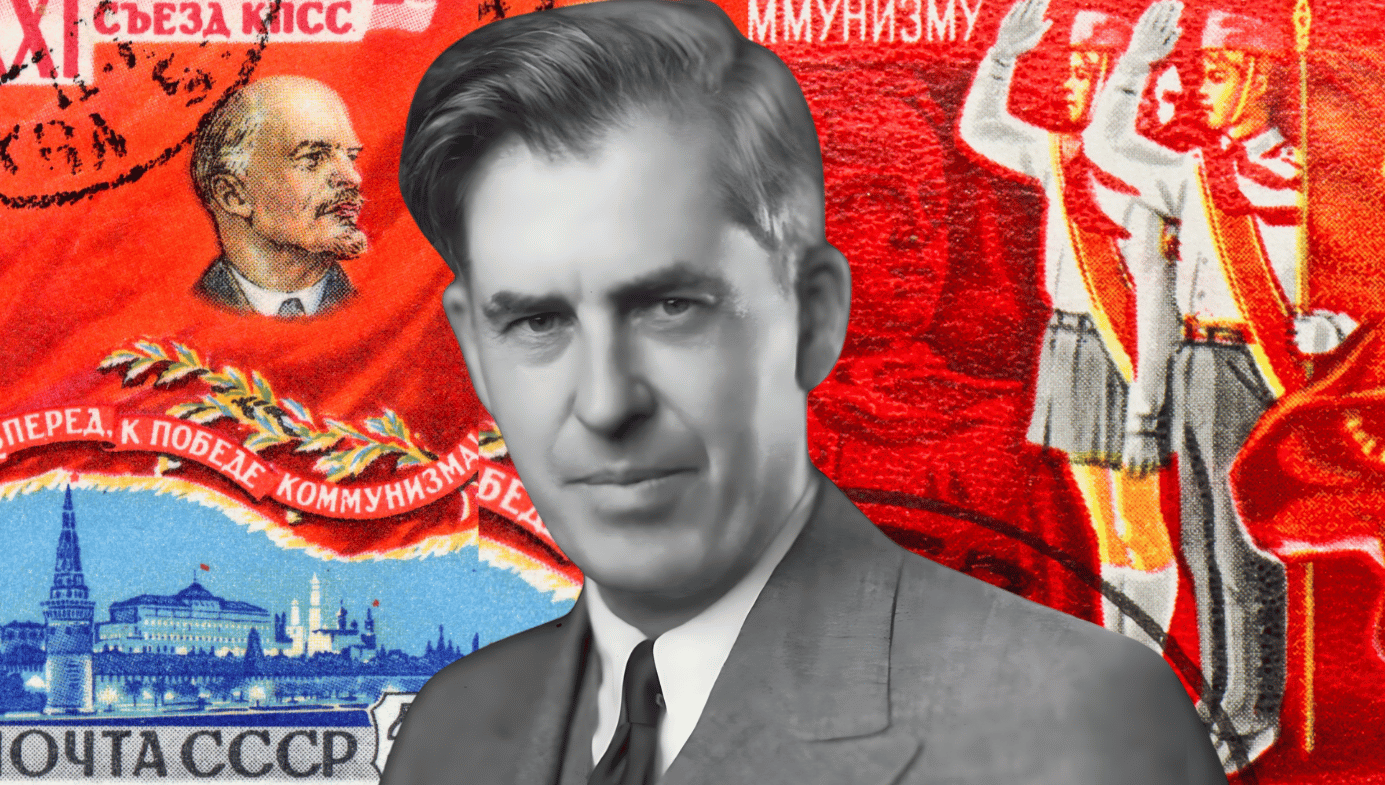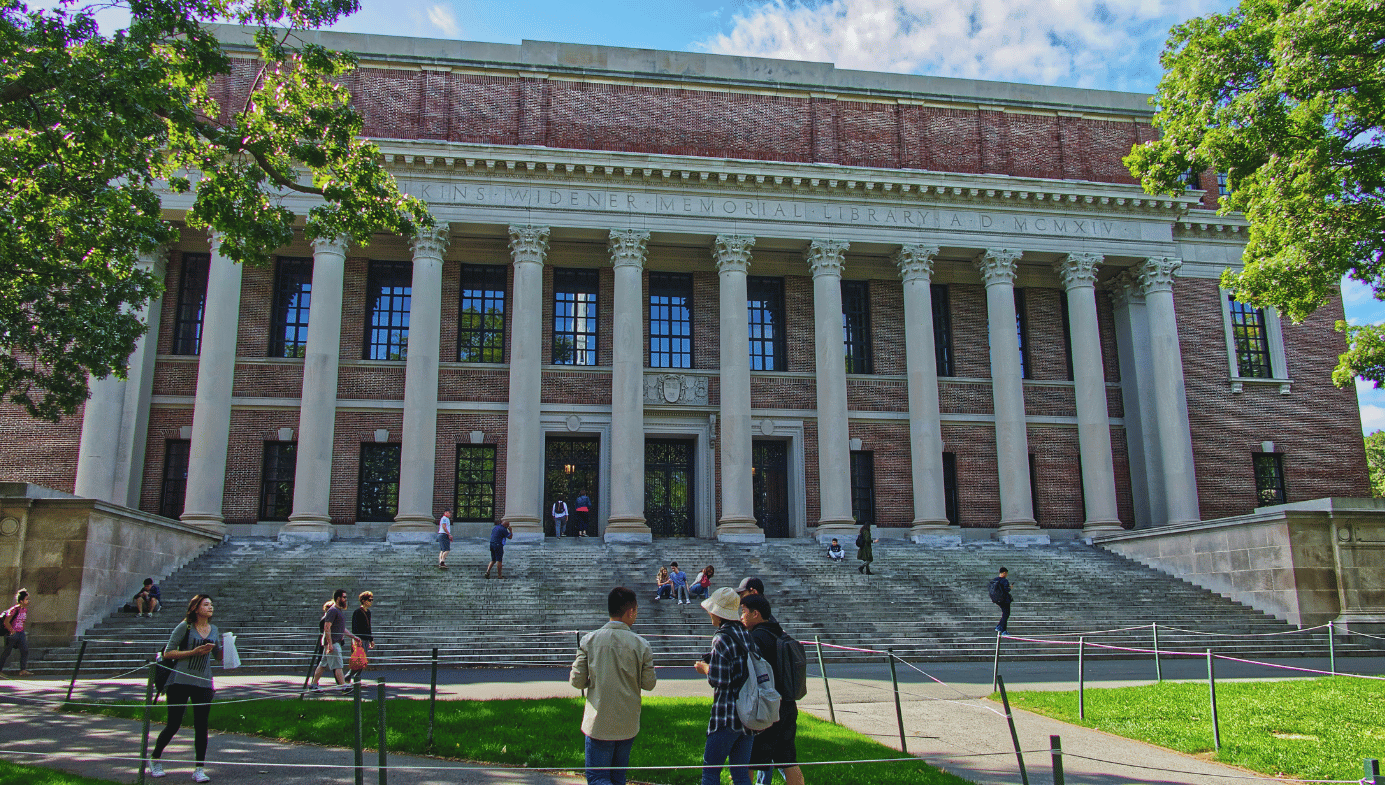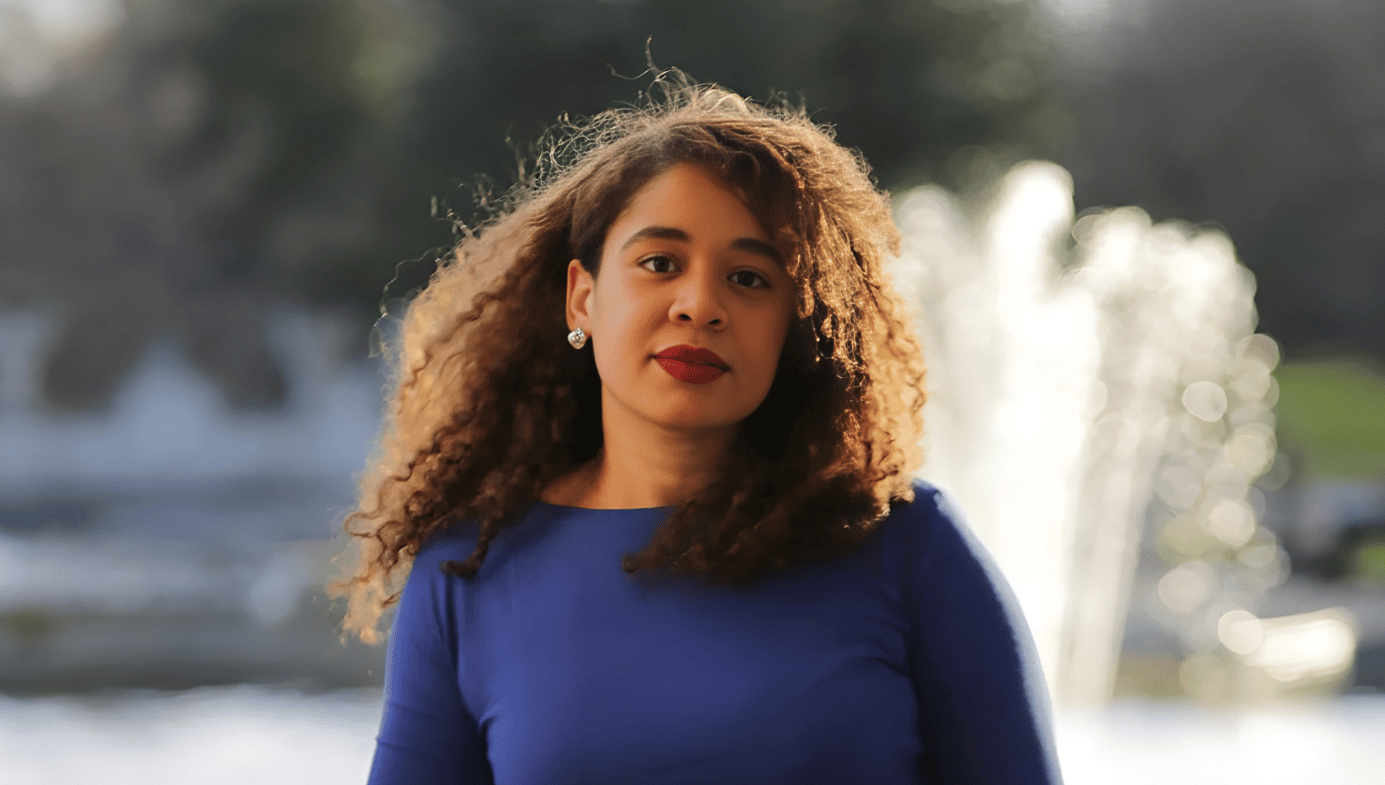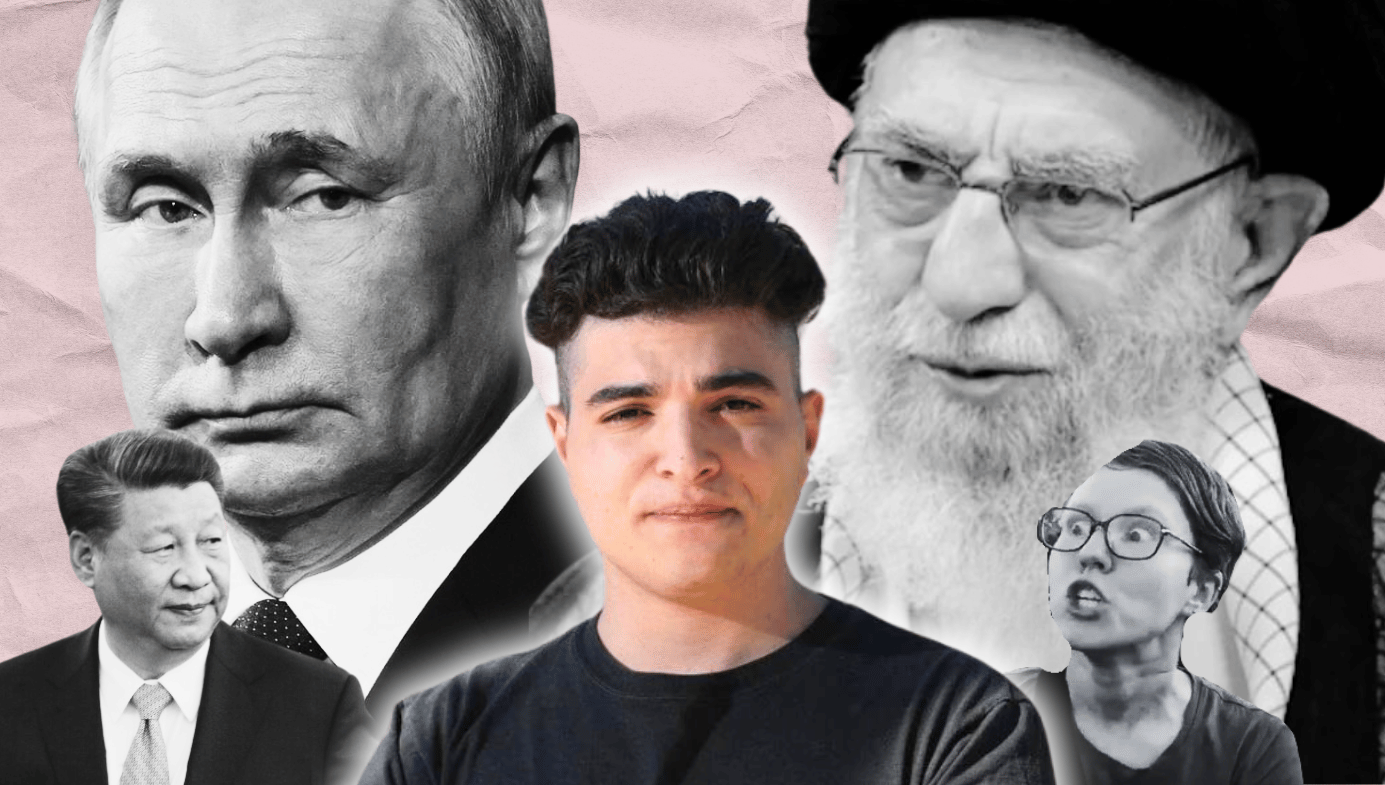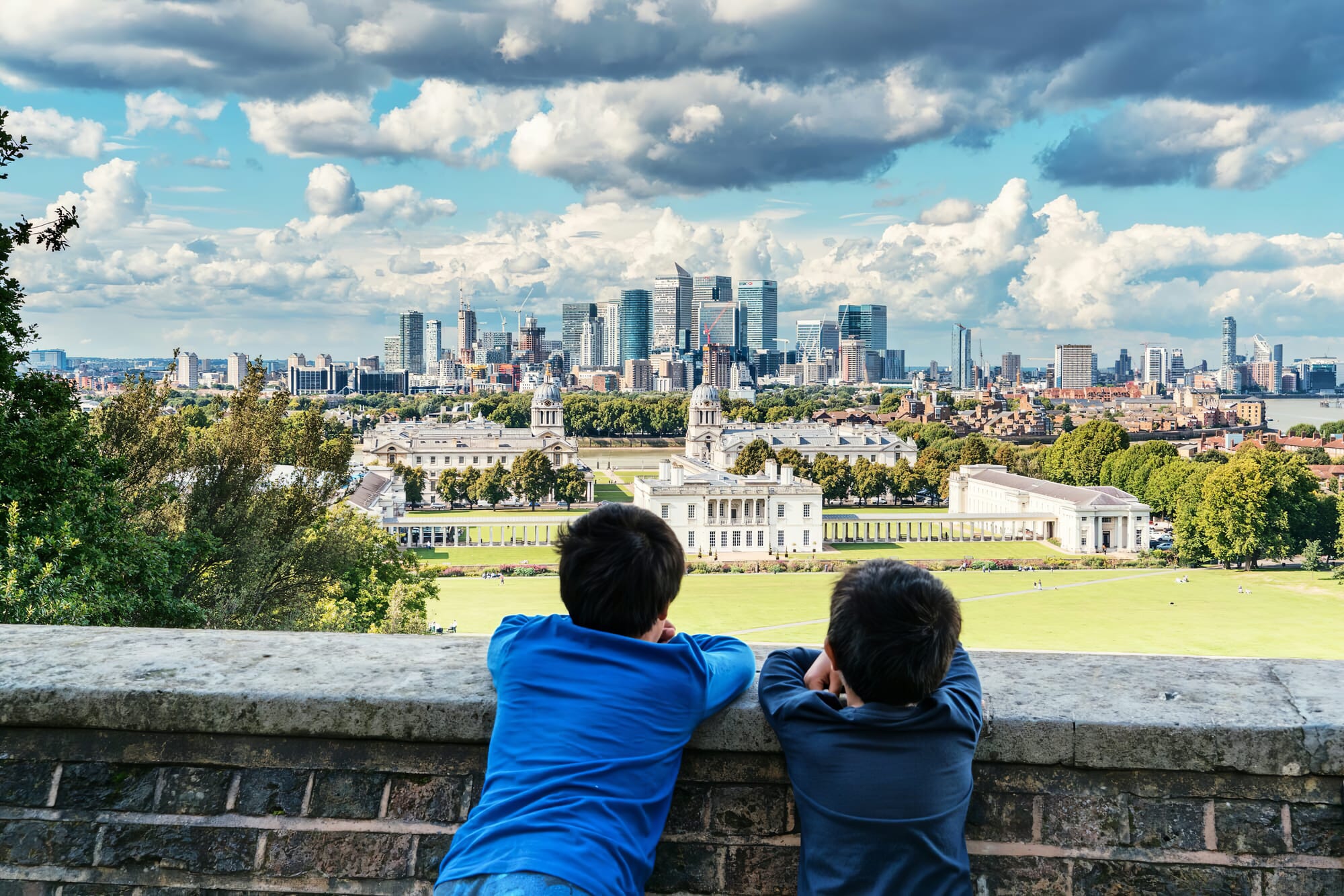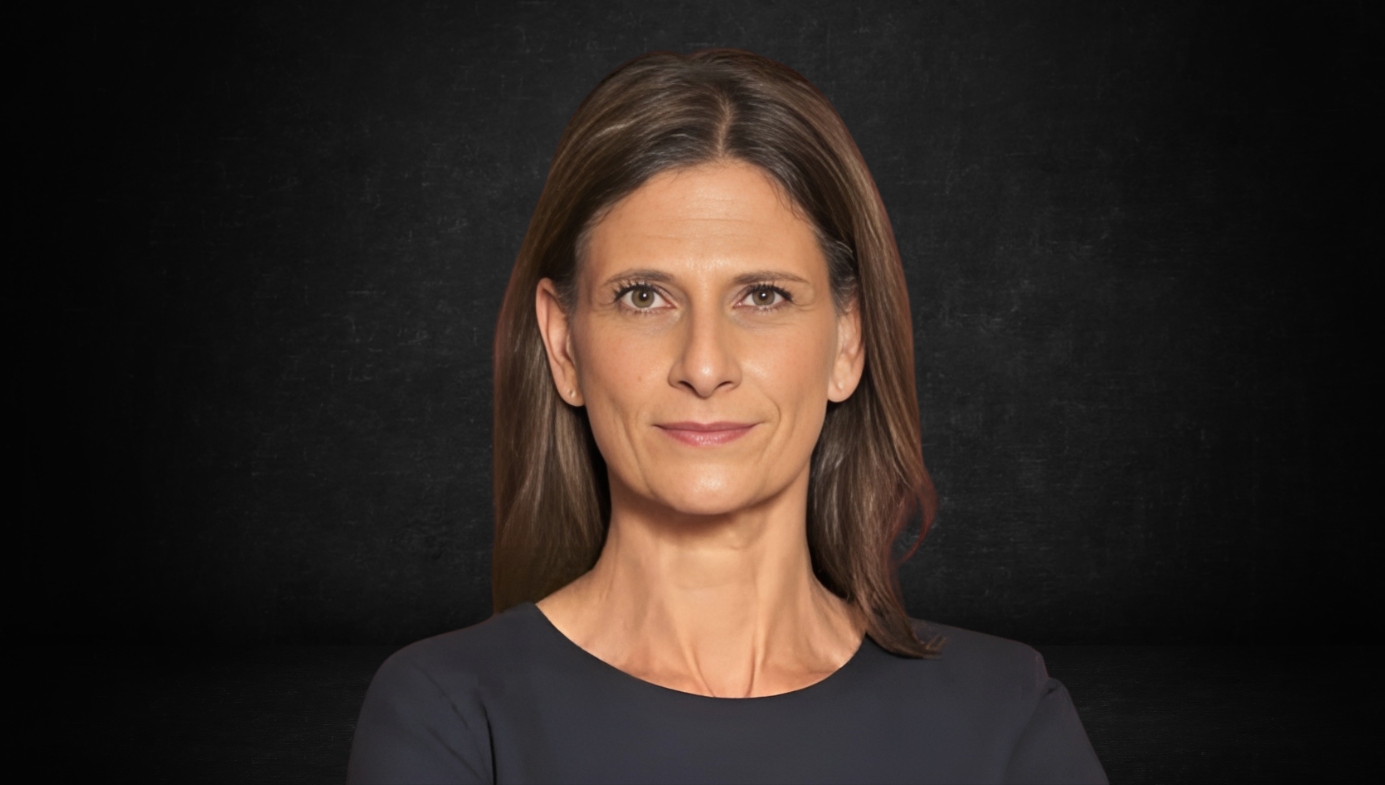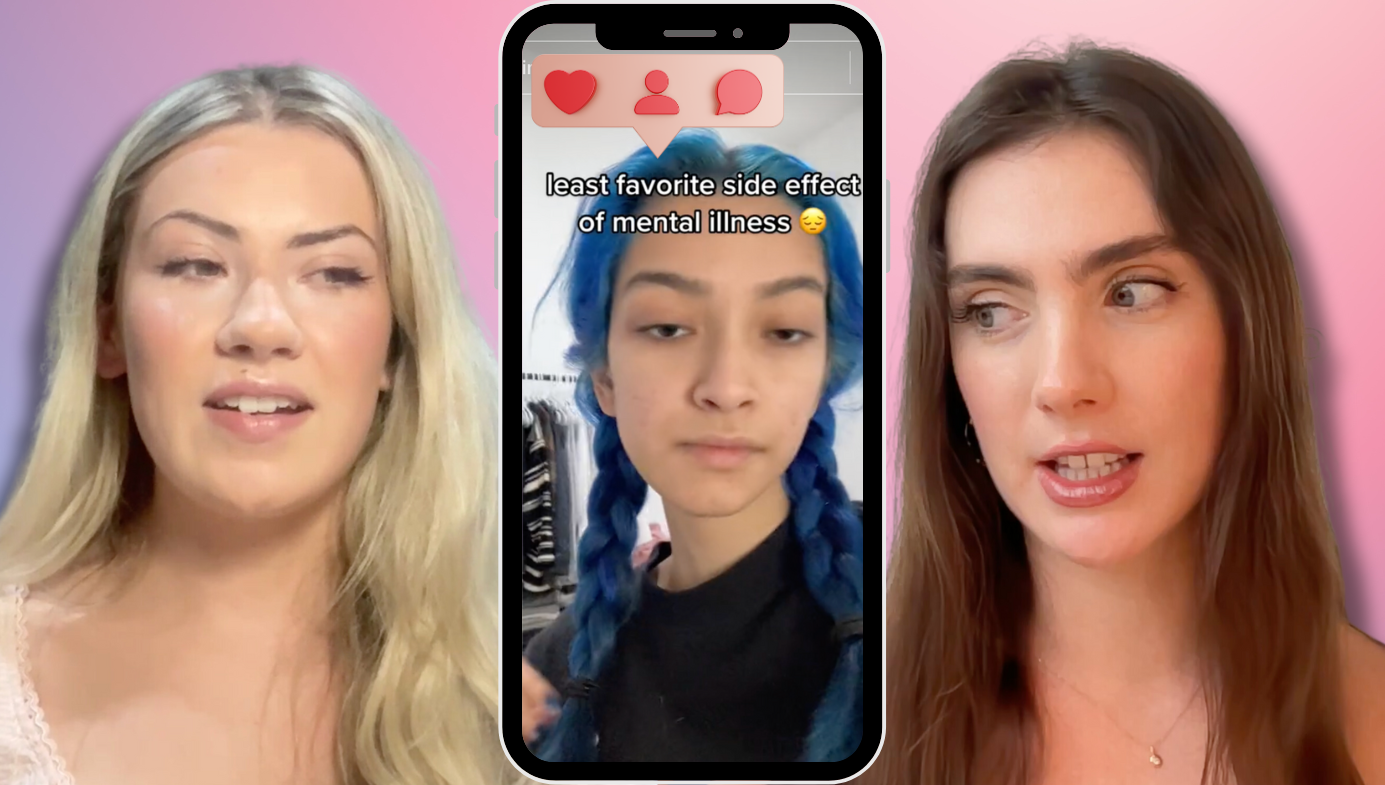An Interview with Jonathan Conricus
Pamela Paresky interviews the former IDF spokesman about the current war and the recent accidental killing of aid workers.

A note from Jonathan Conricus: The unfortunate and tragic killing of international aid workers here with the organisation the World Kitchen is very sad, unnecessary, and should not have happened, and of course it needs to be addressed quickly by the IDF and by Israel.
So far what Israel has done, and I think that's a good thing, is to take responsibility and say clearly that this was Israel's doing, not anybody else's, and to express regret and condolences. That's a good start.
Now, the IDF must investigate, present the findings of the investigation very transparently, and make the necessary adjustments to protocol and to techniques on the ground to make sure that the likelihood of this happening again is extremely, extremely low, because, frankly, I don't think that there is international tolerance for this to happen again. I don't think that Israel will be able to weather another crisis like this.
It's a sensitive time. It's a crucial time. Looking at the big picture, it's even more so sensitive from an Israeli perspective because Israel wants to get rid of UNRWA, the UN Relief and Works Agency, which is nothing more than a front for Hamas. In order for the IDF to do that, Israel needs another aid distributor and other organisations that are willing to step up for the good of Palestinians in need, not in support of Hamas.
That's why this incident comes at such a sensitive time, and I hope that the IDF will make the necessary adjustments to make sure that this doesn't happen again and also discipline the people who were involved in this tragic mistake of a misidentification of an aid vehicle full of aid workers instead of terrorists.
JC: I was a reserve officer who reported for duty on the night of October 7th. I understood that this was going to be a long and horrible war that would take time. It wouldn't be a short operation.
I called my friends in the IDF spokesperson unit and said, "What can I do to help? Where do you need me? Do you want me to go down south and take international media to show them what's going on down south?" Of course, at the time, nobody really understood how bad the situation was. That's why I proposed going South. I didn't know that the South wasn't safe to go to and it wouldn't be safe for three or four days until the IDF finally got the handle on the situation.
The IDF spokesperson unit was under tremendous pressure. They were in probably the most challenging environment and they didn't really tell me what. I said, listen, what you will need, I told the current spokesperson, is for somebody to give you a few hours of rest. So what I offered the current spokesperson, Lieutenant Colonel Richard Hecht, is I'll do the night shifts so that you can get a few hours of sorely needed sleep, because this is going to be a marathon, a long haul, and if you are to manage this well, you need to sleep. Believe me, I've been there and I've done it and I know what it is to try to be a spokesperson without sleeping. It doesn't end well.
That's how three months of reserve duty started. I didn't think that there would be so many interviews and such a demand, but it turns out that there was prime time East Coast and Central US time and morning shows in Australia and a bit of international India as well. At the end of three months, I've done hundreds, if not more, of interviews and briefings and dozens if not hundreds of online briefings on the IDF social media accounts, Twitter, YouTube and Facebook mostly.
I had the opportunity to go to the Shifa hospital and expose a few of Hamas' lies and how they are endangering civilians there and show that to the world. So it was three months of reserve duty, very intense, and quite challenging. We're now almost six months into the war and for three months I've gone back to civilian life. I'm currently a senior fellow at an American think tank called the Foundation for Defense of Democracies based out of DC and I continue to speak on behalf of my people and my nation, not on behalf of the country and not on behalf of the military. I'm not in any official position. I see myself as somebody trying to help and to communicate our perspective, our situation, to people that are honest enough and kind enough and willing to listen.
Pamela Paresky: You mentioned Shifa Hospital and there have been two major IDF incursions into the hospital. Can you talk about the first one and the second one?
JC: Yeah. The two were very different by the way.
So we have to explain a little bit about the situation in the Gaza Strip before we go into the details of Shifa.
So, the Gaza Strip, when you look at it, if you had a bird's eye view or a Google Street view of Gaza, before October the 7th, what the naked eye would see is a Middle Eastern Arab society. The typical square buildings, a lot of neglect, a lot of underdevelopment. Some areas are very posh and developed and nice. The areas where Hamas officials live and those that are close to Hamas, they have quite convenient lives like in the Rimal neighborhood in Gaza City, but not only there. But then you have squalor, poverty, dirt and disrepair in many parts of the Gaza Strip.
What you don't see are any military bases. There's no perimeter with an armed guard at the entrance and a gate that says, "Welcome to Camp Salah al-Din, headquarters of Hamas in Gaza." You don't see this is the main storage facility of Hamas, this is our logistics, and this is our weapons depot. There are no signs and there's no official military infrastructure. Everything is embedded within the civilian population and civilian infrastructure. Hospitals in Gaza were really pivots and hubs of Hamas activity. They analysed themselves, the terrain that they have, and their enemy, which is us. They saw that we are limited and restricted by international law and that we do not target humanitarian facilities like hospitals, like schools, like mosques, like UN facilities. That's exactly where Hamas chose to position its most important assets, either in schools, hospitals, mosques and other UN bases, or in tunnels underneath.
When we speak about Shifa, we are speaking about a compound that Hamas built underneath the hospital and an overt presence inside the hospital above ground in the various clinics and buildings, including in the administration. For many years, Hamas operated using Shifa. We saw it on October 7. They brought Israeli hostages to Shifa. One of them was unconscious, the other one was conscious, and they were treated at the Shifa hospital knowingly by the medical staff and Israel exposed that afterwards with the CCTV footage.
So, Shifa, we called it, and I think in hindsight this wasn't the best wording, the headquarters and there was a significant build-up before the first time that we took the Shifa hospital, of a Hamas headquarters in Shifa. Headquarters creates lots of expectations. We probably would have been wiser to call it a node or a hub or an important asset, but the fact of the matter that Hamas systematically used the hospital for illicit military purposes, is undeniable even for a presenter at Al Jazeera. There's clear visual evidence, there's spoken evidence, and there's remains, weapons, ammunition, tunnels, et cetera, that are irrefutable. The fact is that Hamas illegally used the Shifa Hospital for military purposes, in contravention of international humanitarian law and while doing so, endangered civilian patients.
PP: Was there any way that the doctors and nurses there didn't know?
JC: No, I think not.
I think that an extremely small amount of staff can claim that they didn't know. It was the untold secret. Hamas, armed Hamas thugs, ruled the Shifa hospital. There were areas that were off limits for staff, where Hamas simply had an above ground presence, the entrance to the tunnels, parts of the MRI clinic, and a few other locations that were off limits to everybody else, but you would see Hamas guys with weapons controlling parts of the hospital. Maybe a sanitary worker or nurse could claim they didn't know, but management, doctors, anybody who had an overall understanding of what was going on in the hospital cannot honestly claim that they didn't know.
So that was going on. Israeli troops were advancing, after Israel first made sure that there were almost no civilians in Gaza City. We called on the civilians to leave. It took us three weeks to basically persuade civilians that it would be a good thing for them, in the interest of self-preservation, to actually move out of northern Gaza and go south. That finally happened. Israel made a move on Gaza, took and fought in various areas and then made their way towards Shifa, seeing on the ground that Hamas terrorists were retreating back towards Shifa and that it became an important kind of pivot for Hamas.
I joined the troops. I went in there because it was so important for us, for Israel, to show how Hamas was abusing that hospital. I went in with the fighting troops, with one of our special forces, and waited for them to do the preliminary clearing and search of the building to make sure that it's safe to go in. Then the moment that they found weapons and military gear, I was called in and we then filmed it and exposed it.
Then our troops investigated underground. They scanned all of the buildings around the Shifa complex, the grounds themselves, inside the perimeter and inside various clinics and facilities to find openings or shafts to tunnels. It took us a few days, maybe a week, and then we found quite a lot of tunnels, including tunnels that we then exposed to the world and we had international media see it unedited firsthand with their cameras inside the tunnels. We also showed our footage of it with drones.
The fighting continued. Israel went on to fight in the central camps in Nuseirat and a few other parts in central Gaza, and then went on to fight in Kahn Younis in southern Gaza. Since there was a finite amount of Israeli troops, the troops were pulled out of Shifa and without causing any bodily harm to patients. That's very important to emphasise.
Troops went out and what the IDF saw as months went by were more and more intelligence indications popping up that Hamas operatives, including very senior ones, high level commanders, had gone back into Shifa and were now using it again to sustain themselves and to manage Hamas in northern Gaza and also to run military operations from it.
What the IDF did, together with the ISA, the Israeli equivalent of the FBI, which has a lot of human sources, was to launch a surprise attack on Hamas operatives inside Shifa. They were caught unaware. Dozens were arrested within a few hours and a total of now more than 500 operatives of Hamas and Islamic Jihad were arrested. Some of them were rank and file. Many of them were rank and file, but some of them were very senior. About 300 terrorists were killed in the Shifa compound. Lots of weapons were found: dozens of AK-47 ammunition, RPG launchers and their ammunition, and explosives. Millions of shekels in funds were found that Hamas was either distributing from there or storing there in order to manage its operations in northern Gaza and to go back to governing Gaza by using money.
It was a tactical success. It indicated to Hamas that nowhere is safe. You can hide in a hospital, you can hide in a mosque, you can hide in an UNRWA school, you can hide underneath UN headquarters or UNRWA headquarters. Nowhere is safe. We will get to you. Israel will get to you wherever you are while respecting and fighting according to international humanitarian law.
In the action in Shifa, not a single patient was killed. Yes, there is structural damage because Hamas fought against Israel and wherever there was fighting, eventually there was structural damage. But at the end of the day, not a single Palestinian was killed.
Today, I read, on CNN, a horrible story. The headline is just atrocious. It's blaming Israel for millions of things that we haven't done. I think paragraph eight or nine, buried deep down behind the lead, is an actual, firsthand testimony of a Palestinian who was present in the hospital and he's saying: yeah, I saw dozens of Hamas and Islamic Jihad gunmen. He doesn't call them terrorists. He says resistors or fighters, but he says, I saw dozens of Hamas fighters inside the hospital when the Israelis came and they fought against the Israelis. The story was all about the destruction. When you look at Shifa now, yes, there is destruction, but that's what happens when terrorists use infrastructure in order to fight, sadly.
It's important to emphasise: there was no loss of life. There were hundreds of patients there, Palestinian patients. None of them were wounded or killed. That is a tremendous tactical achievement that I hope the IDF will be able to emulate in other operations that it we will continue to do in the Gaza Strip, maybe in Lebanon, but we're focusing on Gaza now. I'm sure that other militaries will have a good look at how the IDF was able to go into a very sensitive area, fulfill its mission of arresting or killing terrorists, taking weapons, taking funds, and doing it without killing civilians. I think that's commendable.
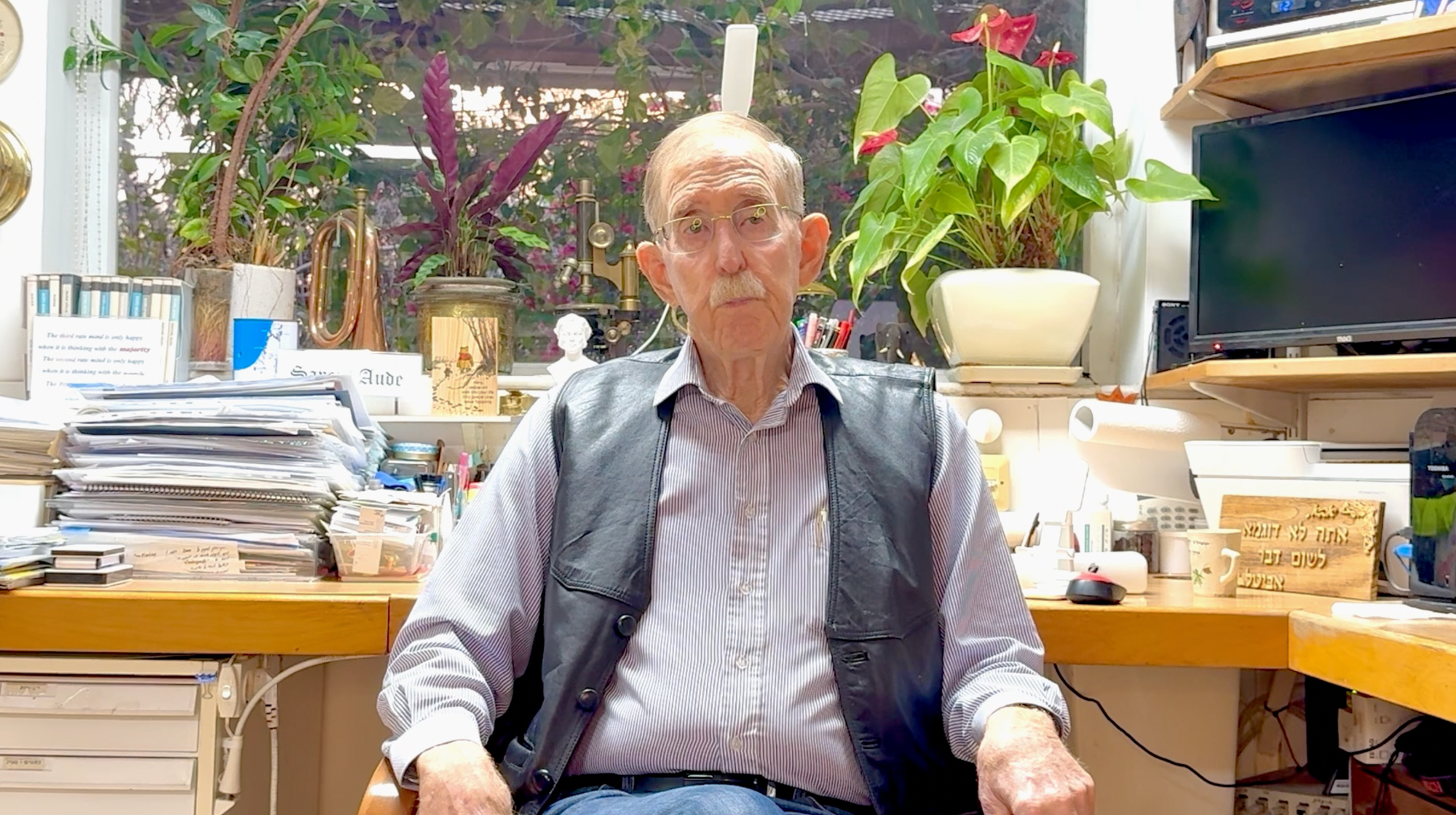
PP: When you said earlier that there were three weeks of evacuating civilians from the North, there were a lot of stories of civilians being killed on their way through the humanitarian corridor. Can you talk about how that happened?
JC: Let me tell you an interesting story about an encounter I had with a New York Times reporter. I won't say her name, but she was stationed out of Cairo.
There were two mysterious explosions on the Salah al-Din Road. That's the main thoroughfare in the Gaza Strip. It's the main road. It goes from north to south and basically connects with Rafah in the south, and it connects with the Erez crossing into Israel in the northern part. That was the humanitarian corridor. Through that road, most Gazans evacuated from northern Gaza. That was the designated area and that's where we did not attack in any circumstance or scenario.
There were two mysterious explosions. One of them, there was a truck involved and the second one was a convoy of vehicles and there were reports of dozens of Palestinian killed.
The knee-jerk response was, and the first headlines in BBC, New York Times, and the other usual media outlets that are very harsh on Israel and sloppy in their professional standards, were: Israel attacks humanitarian convoy, X-amount killed. I don't remember the number that they quoted. They were kind enough to ask us before they printed and we started checking and investigating if any of our troops, ground troops, air troops, naval troops, had struck in that area and is there a chance that we had inadvertently killed civilians who were trying to evacuate which was of course contrary to our strategic needs because we wanted people to feel safe and to evacuate. It took us three weeks to evacuate all of them and of course it would have been counter-effective for us for them to be afraid and not to feel safe to evacuate. The ones who would benefit from that, and I'll get to that later, is of course Hamas.
So there were these two mysterious explosions. We started looking into first our military information that we had, check the air force, artillery, tanks, infantry, navy, anybody that has anything that can cause substantial damage and loss of life. Did anybody fire? Were there any wrong rounds that went astray? Any bombs that were unaccounted for? No.
Then we started looking at visual footage from cameras and from social media, of the remains, the sad sites of bodies of people that had been killed there, and also of the explosion. There was this one specific video of one of the explosions where you can see a guy and he's filming from the dashboard. The convoy is driving and all of a sudden a ball of fire erupts from the lower right hand side on the road and it erupts from down up and to the left. That's not what it looks like when you drop ordnance from the air. It was much more like when you detonate an IED, an improvised explosive device, from the side. Looking at the bodies of the casualties, they also did not look like what we see happens to a human body after it is close to an explosion by air-dropped ordnance. In terms of the type of injuries, I don't want to get too graphic, it didn't look as if they had been killed by something dropped from the air, which is how we deliver bombs. That led us to believe that something else was afoot.
I had hours, hours, four or five different phone calls every night, with a certain journalist, she calls herself an Emmy-winning investigative visual journalist, and she was investigating the explosions, and she basically wanted to prove that Israel had killed those Palestinians and had fired towards the humanitarian corridor. I was trying to make the point that we actually hadn't and that she should be looking elsewhere and asking other people questions as to who would stand to gain from civilians being killed while they're trying to evacuate. It's a very easy answer. Hamas stands to gain. They did not want people to evacuate. We caught them and we showed it with visual evidence and with recordings, erecting roadblocks on that very same route and we filmed it from the air, and we also had testimonies of thugs, Hamas thugs, going in and taking the keys, snatching keys out of the ignition of Palestinian vehicles, in order to make it impossible for them to evacuate.
PP: Testimonies of the people whose keys they took?
JC: Yes, testimonies of Palestinians and we released the audio recordings of it.
Hamas was doing this. Hamas had an interest in preventing civilians from leaving because Hamas wanted humanitarian shields to be there to protect their assets. Hamas knows very well that the most potent weapon they can threaten Israel with is international condemnations and public opinion, and dead civilians equals pressure on Israel, whether they're justified or not, whether they were caused by Hamas or not. Israel gets the blame if civilians die and Hamas wanted to create that situation. So they were making it very difficult for Palestinians to evacuate and they stood to gain from it.
After I did four or five long conversations with this so-called investigative journalist, no story appeared. After I sent her the videos of the recordings and other footage from social media filmed by Palestinians, there was never a story printed. No visual investigation, no print form, nothing.
I called her back and I got a sense that the story wasn't going where she wanted it to go. I called her a few days after that and I asked, "What's up with the story?" You told me before that you're filing the story tonight and that was a few nights ago. How's the story going and what's the lead? She gave me all kinds of reasons for it not happening. I said: really? You invested five hours in this, you told me that you had lots of people collecting information on the ground and conducting interviews and you had your vaunted visual investigations team, the New York Times has a very good and very well funded visual investigations team, you had them all over it and there's no story? How come?
Reportedly 50 Palestinians died. Why isn't that a story? Does it matter who killed them? If it wasn't Israel, then it isn't a story?
We've seen bodies. People died. What did they die of? Until this day, the New York Times has not published a story about it. I take that as an example of the hypocrisy, the double standards, and the activist journalism that masquerades for proper journalism and where you have activists, some of them acclaimed and who have won Emmy prizes, who are just out to get Israel. If they can't stick it to Israel, then it's probably not a story.
PP: That leads to the question of going to Rafah. There's a lot of international pressure to not go into Rafah, including on the part of the US apparently. What's the latest on that?
JC: I think if there was a barometer for hypocrisy, it would shatter from listening to Egyptian officials citing humanitarian concerns for their reason why they oppose Israeli action in Rafah. Had they any concern for humanitarian issues, they would have opened the borders a long time ago and allowed hundreds of thousands of Palestinians to evacuate themselves from a horrible situation and for a temporary, short period of time, live in some kind of temporary housing refugee camp in Northern Sinai.
I think that the Egyptians couldn't care less about the well-being of Palestinians. They're using them as a tool against Israel. They look at the rebuilding of Gaza as something very lucrative. There would be lots of construction deals, lots of stuff that will move through Egypt, lots of opportunities to take cutbacks and to take dividends of big international deals and organisations that will be there. I think that they're looking at the situation and they want to preserve Hamas in power. They want Hamas to continue to be there and they don't want an area of total lawlessness in Gaza because what they care about is stability in Egypt. If there's total instability in Gaza, I think their concern is that that will spill over into Egypt. That is their only concern: the stability of their own undemocratic regime.
I am saddened by the fact that most countries, but most importantly the US, have adopted this line of thinking that we support Israel's right to defend itself, to defeat Hamas, but we are against Israel striking Hamas in Rafah. It doesn't make sense because Israel cannot defeat Hamas if it doesn't go into Rafah. Why? Because Hamas is there, not because Rafah is such an important place. No, because Hamas is there. If Hamas had been in the former Gush Katif, the Mawasi area, then the IDF would need to go there in order to defeat it. There are four or five remaining Hamas battalions in Rafah hiding amongst and under the civilians. They need to be dismantled. Most important are smuggling tunnels that go from Egypt into Gaza. All of the weapons that Hamas and the Islamic Jihad have come through those tunnels. For Israel to make sure that October 7th doesn't happen again, we need to make sure that we dig down, cut the tunnels, and make that area un-tunnelable, if that's a word, and there are techniques to do it. That's an absolute basic condition for Israelis to live in safety. As long as those tunnels are open, the door will be open for Hamas to rebuild itself, and if they can, they will, because we're not going to defeat the idea of Hamas. We're not going to defeat the idea of radical, barbaric Islam. We're not going to defeat the idea of ISIS or the idea of Hamas. They continue to live on even after they are defeated militarily.
Now, another level of complexity is that when, not if, Israel goes into Gaza and delivers a strong blow against Hamas, that won't mean that the fighting will be over. We'll defeat Hamas in Rafah. We'll cut the tunnels. By the way, we'll do it after we film all of the tunnels and expose really what it is about, how big, how well furnished, how substantial these tunnels are so that people can understand that we're not talking about some little tunnel where you can barely stand. These are tunnels that are big enough for pickup trucks to drive in. Some of them are big, serious commodity tunnels. Once Israel does that, then there will still be fighting because there will still be Hamas fighters and terrorists scattered around the Gaza Strip. I don't think that they will surrender. They will continue to disguise themselves as civilians when necessary and take arms when the opportune time avails itself. We will have months, if not years, of what I would think will be low or mid-level intensity fighting in the Gaza Strip, even after we take Rafah.
But to leave Rafah is basically saying we want Hamas to continue to exist and to see the light of day as a military power, as a political organisation, and as sovereign in Gaza, and we don't want Israel to win. When anybody says "Ceasefire now" without returning the hostages and Hamas surrendering, that means Hamas wins, Israel loses, and it was all for nothing from an Israeli perspective and a tremendous achievement for Hamas. Those who say, "No, you mustn't attack Hamas because of the civilians," they're basically saying they want Hamas to win.
PP: So the other thing that has been in the news quite a bit is this issue of humanitarian aid. What's the truth about the humanitarian aid? What was the humanitarian aid situation before October 7th? What is it now? What is the media getting wrong?
JC: The first and most important truth is that there is no famine in Gaza. People are suffering. People are in discomfort and hardship that's not to be underestimated or belittled. People are suffering as a result of Hamas's actions of attacking Israel on October the 7th and Israel's response to it.
There is a need for tremendous humanitarian efforts across the board: construction, infrastructure, food, medicine, fuel, electricity, everything. Many parts of Gaza will take years to rebuild, but humanitarian suffering has been weaponised by Hamas through the use of international media and public diplomacy and they have worked in cahoots with different UN organisations that are in violation of their very basic charter. These UN organisations are working with a terrorist organisation, a dark medieval oppressive regime. That's what UNRWA is doing, allegedly for the sake of helping Palestinians. But what UNRWA has been doing since Hamas took power is just to serve as a front for Hamas. Hamas officials have said it themselves. We, we're not responsible for the civilians, that's the UN's responsibility. Our money goes to building tunnels on the ground, buying weapons, training our fighters, and making sure that our people are taken care of. The guys above the ground, the peasants, who cares about them? That's for the UN to take care of. The fact that UNRWA has been using international taxpayers' money, so generously and so gullibly contributed by so many countries, that's the real travesty.
Israel should have taken the initiative with regards to providing humanitarian aid and we shouldn't have waited naively for the UN and other NGOs to do their job because they're not interested in doing their job. They're there for various other political purposes. Their top priority is not to care for Palestinian civilians. It is self-sustainment, supporting Hamas, ruining it for Israel, many other things, but it's not caring for Palestinian civilians. What Israel should have done earlier on was to build a humanitarian zone administered by Israel, take control of it, channel aid towards that area, and then force everybody to work there where it suits us instead of asking humanitarian organisations to do the same thing, which eventually failed. That's the reason why there are internally displaced Palestinians in Rafah and Khan Younis, because that's where UNRWA told them to go. If we had built a realistic, solid, earnest initiative, people will have gone where we told them to go.
The biggest challenge now is the aid delivery inside Gaza. Lots of aid is coming in. It gets to UNRWA or other facilities, or it gets across the border into Gaza, and then it is stuck. I'm talking about 20 to 30 % of the aid that is stuck in either UN centers or on the ground waiting to be distributed inside Gaza. That is what's causing a lot of the shortages. There's more food coming into the Gaza Strip today than there was before October 7. Many people do the lazy comparison of there were a thousand trucks coming into Gaza before October 7 and now there's only 250 or 300. Yeah, of course, but before it was also clothes, construction material, aggregates, bulk material for agriculture, and many things that take a lot of loads, but there's more food, water and medicine coming in now than there ever was. To claim that Israel is obstructing ai or Israel isn't supplying enough ai, that's propaganda and lies against Israel.
Today, Israel has a ground corridor operating in Kerem Shalom. The Egyptians are pumping in aid through Rafa. Israel opened a second ground corridor in the northern part of the Gaza Strip, basically paved a new road that provides aid to the northern part of the Gaza Strip directly without having the need to go south and then to go north. And aid is being delivered via the sea. It's already been offloaded a few times and it will grow in capacity as the American pier will be completed in a month or so. Then we will be distributing from the sea as well as the air. Aid is being air dropped by various generous countries led by the US, but also the Egyptians, Jordanians, Emirates, and a few other countries, and the French have been dropping it.
The problem is more distribution inside Gaza. Hamas thugs are taking trucks, basically just robbing them, stealing the trucks and taking them to Hamas warehouses and then you see goods labeled "Humanitarian Aid Not for Sale" on Gaza markets at exorbitant prices, which I think is the peak of cynicism by Hamas and those who are corrupt enough to work with them.
To summarise, it's a sad situation. Palestinians there are suffering. I wouldn't want to be there to be in their place. But this is a result of choices made by Hamas, by their priorities and by the fact that they launched the attack on October the 7th. Israel is now catching up in terms of taking the initiative on the humanitarian situation. Israel won't have a choice but to own the problem because all of those organisations are not doing that job, sadly.
PP: What last thing should people know?
JC: At the end of this, Israel will defeat Hamas. It'll take years to rebuild the Gaza Strip and Israel will need help to rebuild it. The Palestinians will need help to rebuild it. Hopefully a local or a diplomatic regional framework can be established that will find the funding, the goodwill, the material, and the personnel to do that. That's in the works now.
But I think Israel must hold Iran to task. Iran is the source of this. Iran funds arms and fuels instability and violence in the Middle East. They have more than 20 proxies all over. Seven of them are along our borders with the specific intent of killing Jews. If we change our strategy and don't hold their feet to the fire, and there's many ways of doing that, then I think they will continue to do this and we will see many more years of suffering, of fighting, of death and of killing. I don't want that, not for my children and not for the Arabs who live on the other side of the fence. I wish them well, but I wish myself and my kids well and I want us to live here in peace and prosperity. The only way we can do that is by addressing the source of violence and instability currently in the Middle East, and that is the Islamic Republic of Iran.
PP: Thank you very much.
JC: Thank you.


